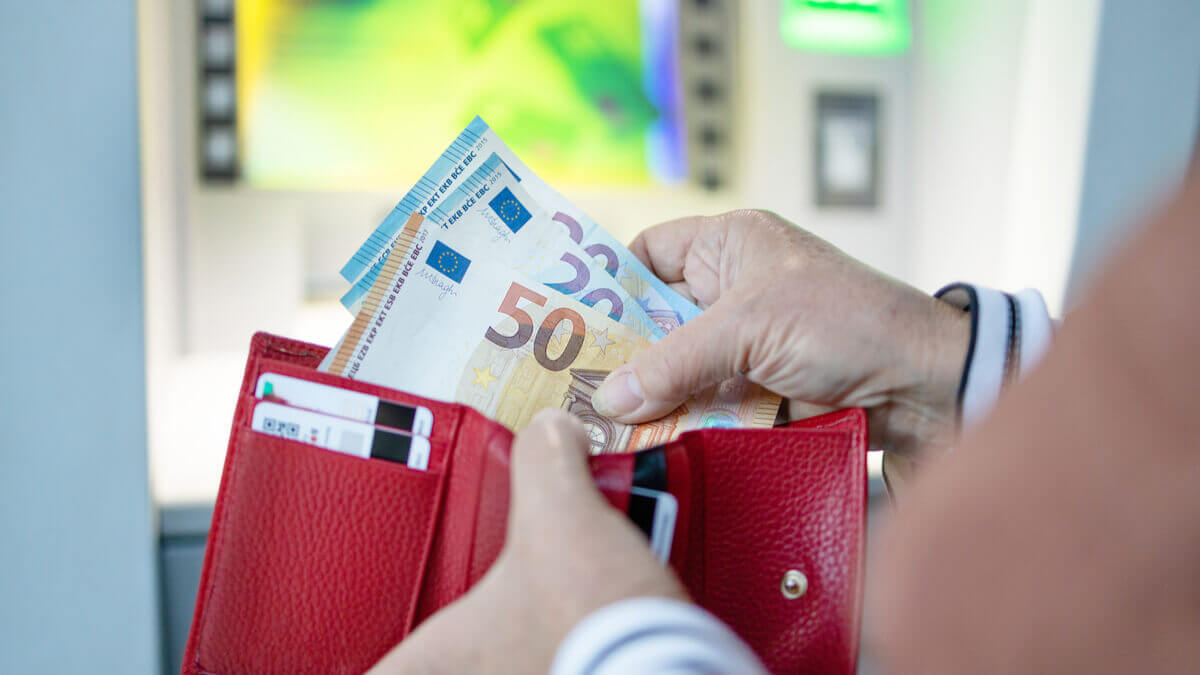How to open a foreign currency account in the US
Wondering how to open a foreign currency account in the US? Struggling to find information? Read on to find out what you need.

Although much of Europe is joined up in terms of banking and financial services, there are some variations in how institutions work across the different countries.
One notable difference is in account products available for non-residents and the processes required to access banking services if you’re not physically there.
This guide covers all you need to know to get you started, as well as an alternative to opening a European account with traditional banks.
Europe has a well-developed banking sector, and although each country has its own rules and processes, much of Europe works together to streamline financial payments under a system called the Single Euro Payment System (SEPA).
SEPA exists to make it as easy to make a payment from one European country to another as it might be to make a domestic transfer. All of the euro area countries are part of SEPA, as well as Bulgaria, Croatia, Czech Republic, Denmark, Hungary, Iceland, Norway, Poland, Romania, Sweden, Switzerland and the United Kingdom¹.
| Make hassle-free payments to Europe with Wise. |
|---|
If you need an EU bank account you might be considering opening a bank account in Germany, or a local account in Portugal for example, to hold your funds easily in euros.
Or you might want to be able to send or save money in pounds, and decide to get yourself a bank account in the UK.
It’s possible to open a bank account in Europe for many US citizens.
However, providers, such as Wise offer multi-currency accounts in several different European currencies. You can also get a card that lets you spend like a local in over 170 countries.
Let’s walk through your options to choose and then open a bank account in Europe.
The right approach for you might vary a bit based on the types of transactions you’ll make and whether you’re looking for an account for yourself or a business — but whatever you need, this guide has you covered.
You might want a European bank account for any of the following reasons:
|
|---|
No matter what your specific situation, there is a solution out there for you. However, you’ll find it easier to find the right bank account or financial product for your needs if you’re really clear on how you’ll use your account on a day-to-day basis.
|
|---|
Once you’ve figured out the types of transactions you’ll need to make, and what features and services are most important to you, you’ll be able to research more specific account types. Here are some of the most popular options for a European non-resident bank account.
When it comes to opening a non-resident bank account, each bank will set their own eligibility requirements, based on demand and local competition. That means you can open a bank account as a non-resident in some countries more easily than in others.
If you want to have a euro-denominated account from a traditional European bank, you could try opening a bank account in Estonia, for example.
Several major banks offer non-resident banking, if you can show you have some link to the country, such as property or a business there. You can also become an e-resident, and set up a business based — virtually — in Estonia, to access business banking services remotely. More on that in a moment².
Similarly, other countries like Spain allow non-residents to open a bank account but in practice, banks often require you to call into a local branch to complete the documentation, or provide a signature.
This might be possible if you’re visiting the country — but isn’t practical for everyone.
| Check out this guide on opening a bank account in Spain, for details of banks offering non-resident accounts there |
|---|
You’d think that it would be fairly easy to open a euro denominated account in the US if you need to transact in EUR frequently.
However, foreign currency and multi-currency accounts are actually pretty tricky to get hold of from traditional banks in the US if you’re a personal customer.
While some banks like East West³ do offer some limited foreign currency account services, they’re usually focused on ways to save and invest in EUR rather than for day to day spending.
Compare a few options if you’re thinking of choosing a traditional US bank, to see if any suit your specific needs.
Calling into a bank in Europe may not be very practical as a non-resident. So looking for a specialist provider which can help you set up an account which can be used to hold, exchange, send and spend euros, and which lets you get an account set up online makes sense.
European bank accounts from specialist providers are available for online opening, verification and use — you’ll just need to make sure you’re picking the best provider for your needs.
We’ll look at one popular option for both personal and business services — Wise — in more detail later.
As we've mentioned before, if you're looking to get access to an European account online, one simple way to do it is to become an e-resident of Estonia.
Estonia has an advanced digital infrastructure, allowing residents — including e-residents — to manage their affairs online. You can vote, pay taxes, open a business, sign legally binding documents and much more, all online using a secure digital identity.
This means less paperwork and has allowed Estonia to open its doors to the world, offering e-residency to people who live outside of the country.
| 💡 |
|---|
|
Interested? There’s more information in this handy guide to the definition, benefits and eligibility requirements for Estonian e-residency.
If you're a business owner or freelancer, then you may be looking to open a business account in Europe. In this case, the Wise Business account is a convenient and low-cost solution that my be worth exploring.
| Some key features of Wise Business include: |
|---|
|
Discover the difference between
Wise Business vs Personal
The most familiar option would be opening an account with a regular bank. The offer for non-residents can be quite limited, so make sure you do a thorough research before signing up for an account.
In addition to banks, there are international multi-currency account solutions, such as Wise or Revolut, that offer you the option of sending, receiving and spending money in Europe like a local — all without having to be an European resident.
If you’re looking for a flexible way to send and receive payments in Europe, a Wise Account might be just what you need.
With Wise you won’t need to worry about opening bank accounts in different European countries. It only takes a few simple steps to get set up and you can then manage your money across dozens of currencies.
| With a Wise Account you can: |
|---|
|
Get started with Wise
in minutes 🚀
| Please see Terms of Use for your region or visit Wise Fees & Pricing for the most up to date pricing and fee information |
|---|
If you’ve found a traditional European bank which can offer you a local EUR account you’ll also be able to make your application there. Exactly how the process works will depend on the specific bank you decide to go with.
A handful of traditional banks will allow online applications for non-resident accounts, but it’s pretty common to need to visit a branch in person.
Once you’re ready to apply you’ll have to show or upload the required documents. You’ll usually need to provide:
- Proof of identity — like your passport
- Proof of address
- Business information for business customers
- Tax residency details are often needed
A minimum opening deposit is often required at the point your account is opened.
| If you're still not sure of what's the best option for you, make sure to check our full comparison between Wise and traditional banks |
|---|
There are a few different ways you can go about getting a European bank account as a non-resident.
You might choose a traditional account from a regular bank based in one of the European countries, take e-residency to get your business set up in the EU, or consider a modern alternative such as the Wise Account.
With such a range of options out there, you’ll definitely find a solution that suits you.
Sources:
Sources checked on 12.12.2022
*Please see terms of use and product availability for your region or visit Wise fees and pricing for the most up to date pricing and fee information.
This publication is provided for general information purposes and does not constitute legal, tax or other professional advice from Wise Payments Limited or its subsidiaries and its affiliates, and it is not intended as a substitute for obtaining advice from a financial advisor or any other professional.
We make no representations, warranties or guarantees, whether expressed or implied, that the content in the publication is accurate, complete or up to date.

Wondering how to open a foreign currency account in the US? Struggling to find information? Read on to find out what you need.

Considering closing your foreign bank account? Discover the tax implications, benefits, and steps involved in making this decision. Learn more here.

Learn how to close your ADCB account from abroad with this comprehensive guide. Discover the steps, required documents, and tips for a smooth process.

Learn how to close your UAE bank account from abroad with this comprehensive guide. Discover the steps, required documents, and tips for a smooth process.

Learn how to close your AIB bank account from abroad with this comprehensive guide. Discover the steps, required documents, and tips for a smooth process.

Learn how to close your Emirates NBD account from abroad with this comprehensive guide. Discover the steps, required documents, and tips for a smooth process.